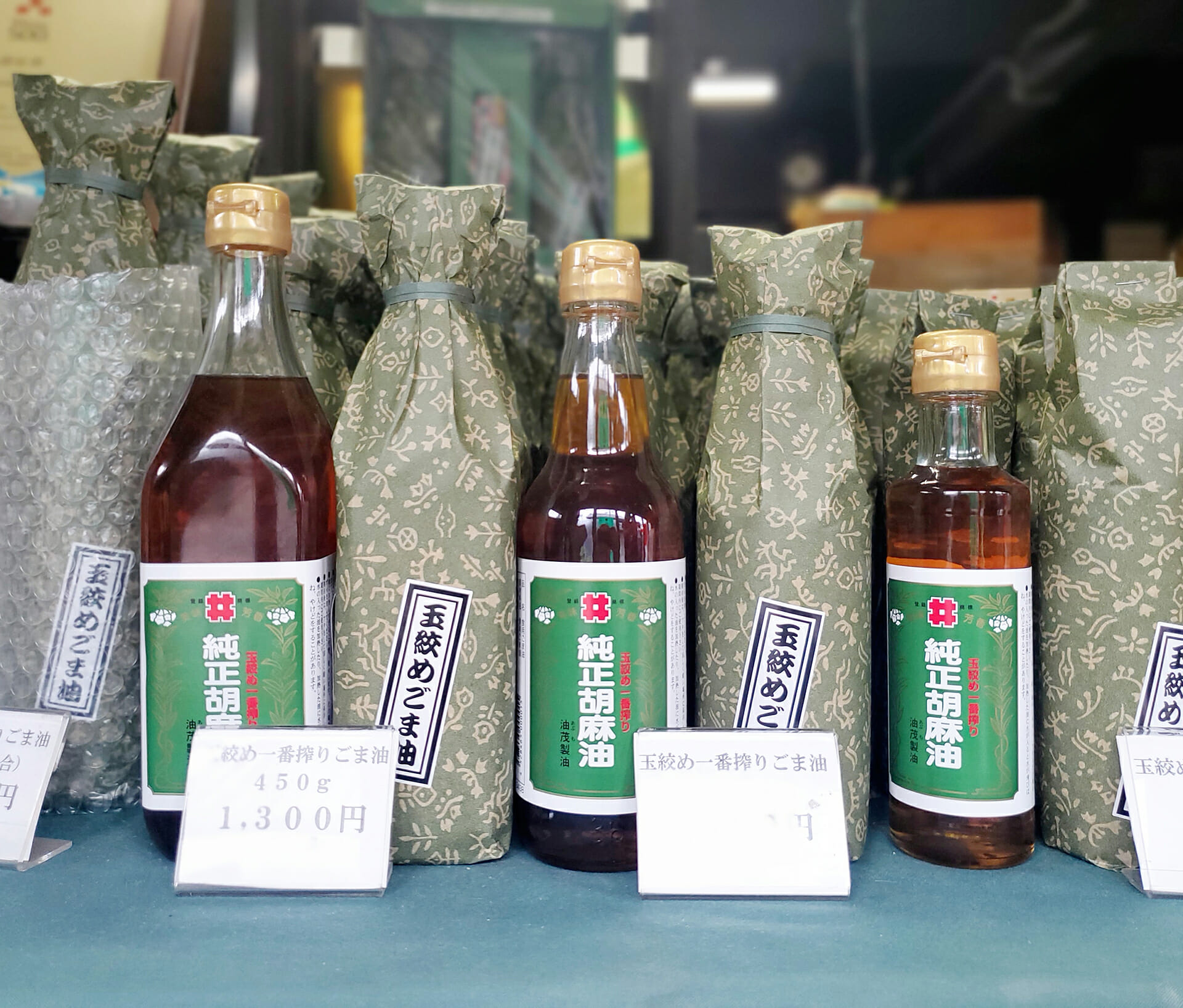
Locals’ Recommendations | Visit Chiba | Latest update:2021/12/22
CA, USA
A time-honored family business located in Sawara’s Historical District, Abumo Seiyu has been producing sesame oil of exceptional quality for locals and tourists alike for over 370 years and 22 generations.
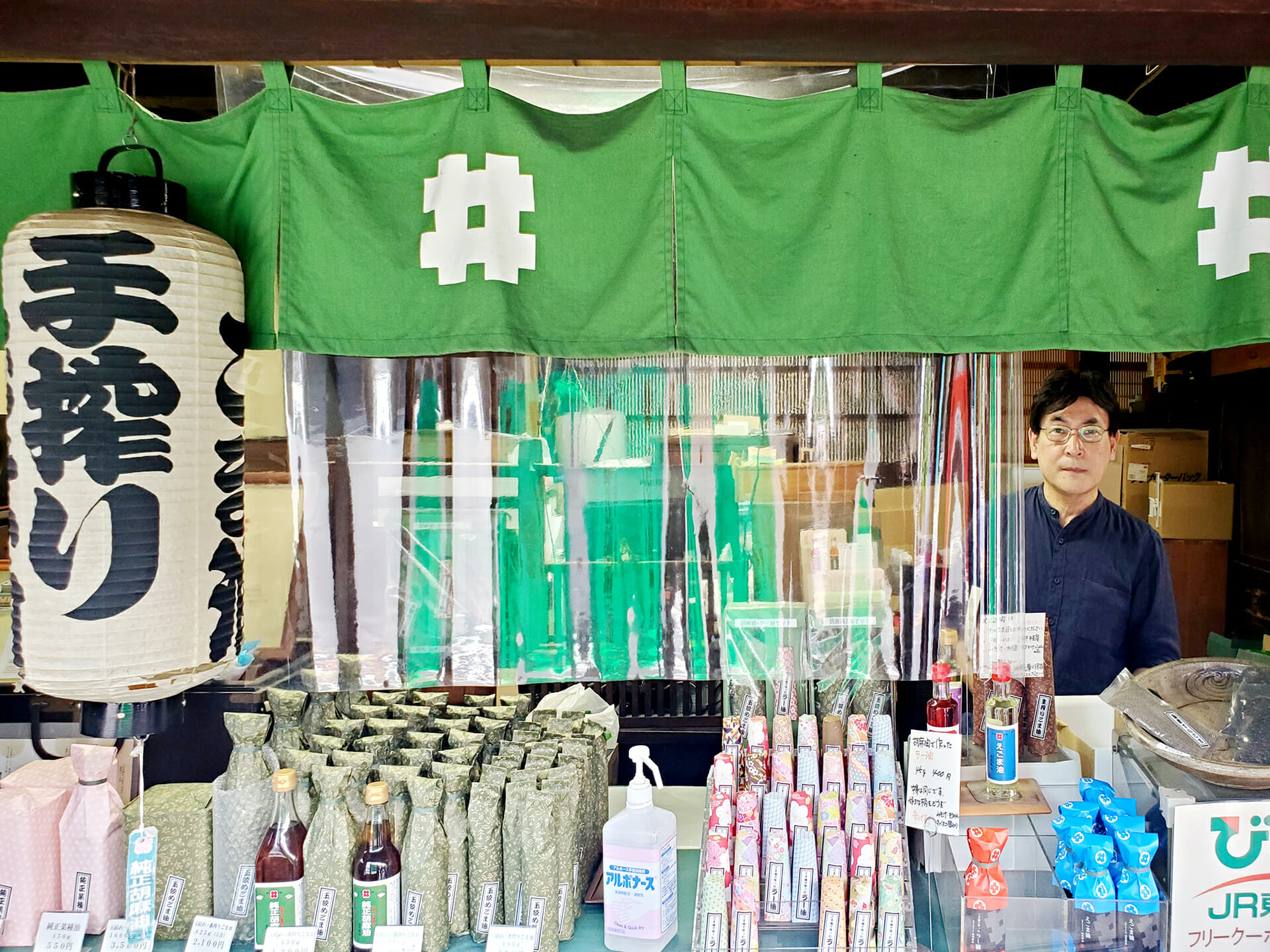
While technology has continued to advance, Abumo has been very adamant about preserving their method of oil extraction, known as tamashime, even going as far as using equipment that they have been operating with since the Taisho period (1912-1926). Compared to other methods, tamashime uses less pressure when compressing the seed, resulting in a product that is most similar to hand-pressed sesame oil and better maintains the original flavor of the sesame.
However, because tamashime is a very time- and labor-intensive process, this traditional technique has become incredibly rare, with only about 10 other businesses in the country still practicing it. Nevertheless, the current head of Abumo Seiyu declared without hesitation that they will continue making tamashime sesame oil with their utmost care so that everyone may experience the pure traditional flavors that can only be created from this priceless, age-old process.
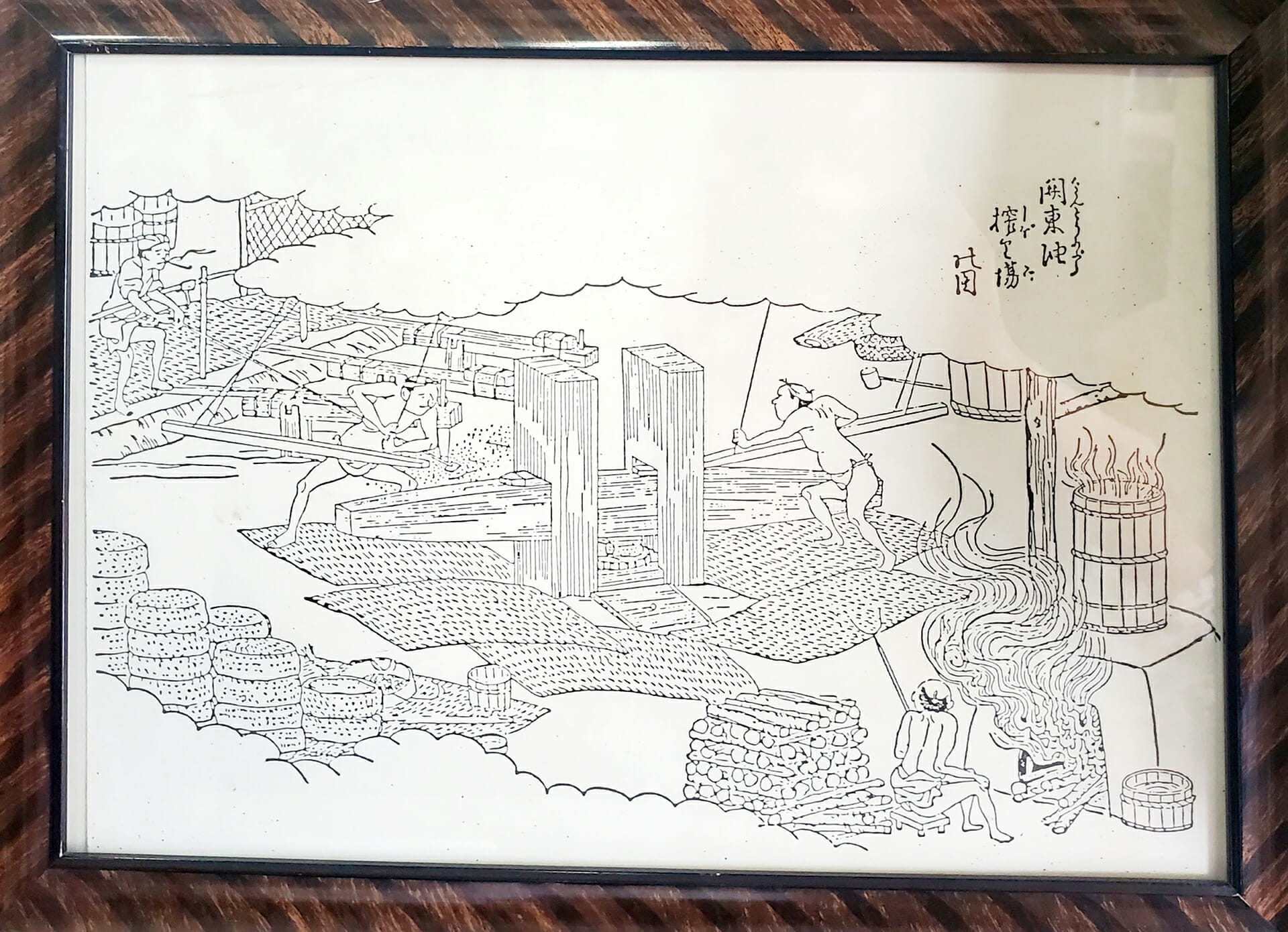
Moreover, whereas most sesame oil manufacturers compress the seeds multiple times to extract as much oil as possible, reducing production costs but increasing the oil’s astringency, Abumo only uses the oil extracted from the first press, creating a product of the highest quality and purity.
Another hot product of Abumo is their ra-yu, or chili oil. Using their sesame oil as the base, they infuse it with eight different spices, creating a fragrant and spicy chili oil of a mesmerizing scarlet hue. Hand-wrapped in traditional washi paper, each with a different pattern, picking out your favorite is quite fun! Its adorable packaging and compact size also make it an ideal souvenir or a gift.
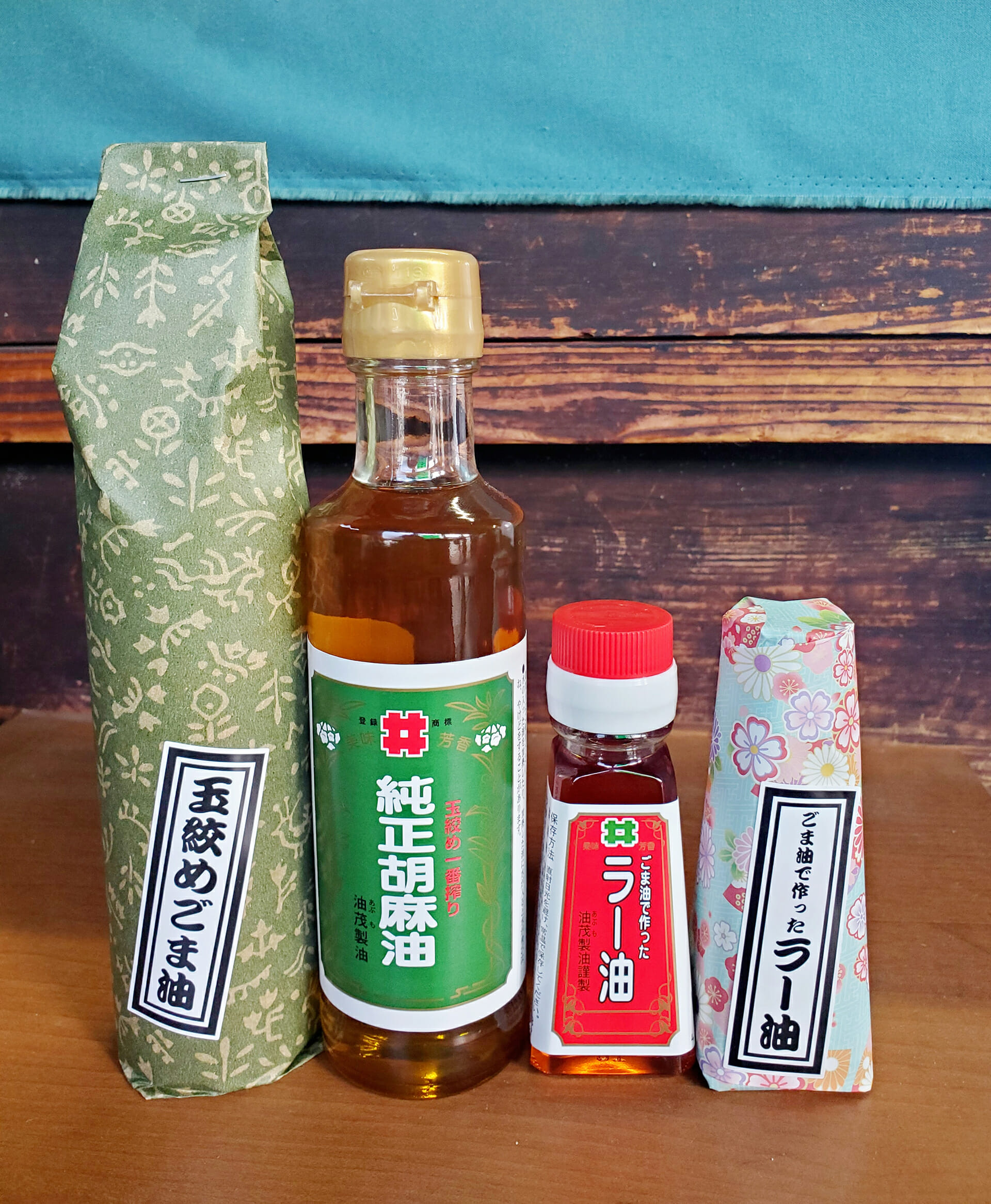
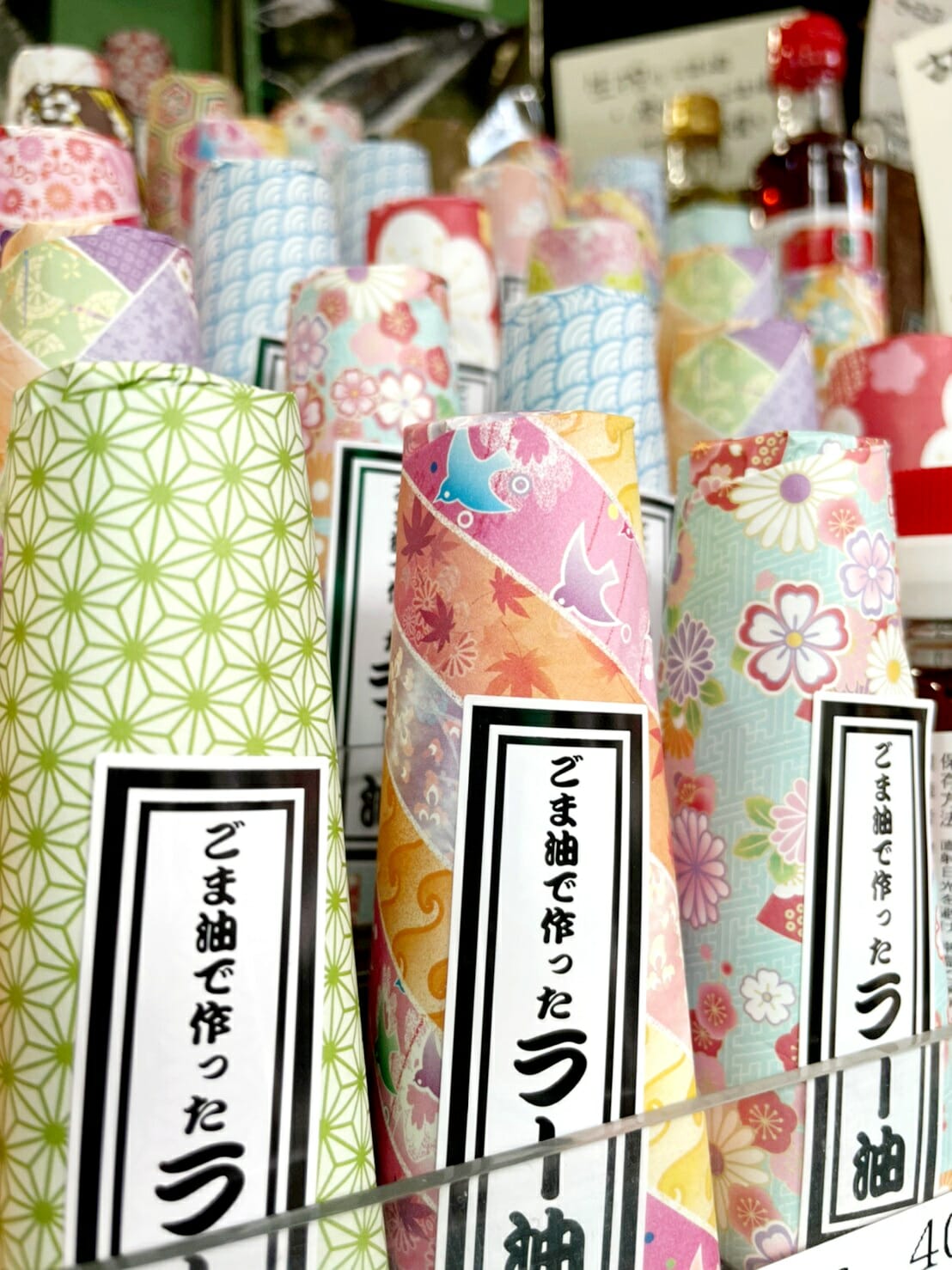
As a Chinese-American who uses sesame oil like my life depends on it and upon learning about how exceptional Abumo’s sesame and chili oil were and seeing my coworker swooning over it, I knew that I had to try it out for myself. Using local produced ingredients purchased at Mizu-no-Sato Sawara, an amalgamation of a roadside station and a riverside station that is perpetually bustling with locals, and Abumo’s sesame and chili oil, I procured up several of my favorite dishes.
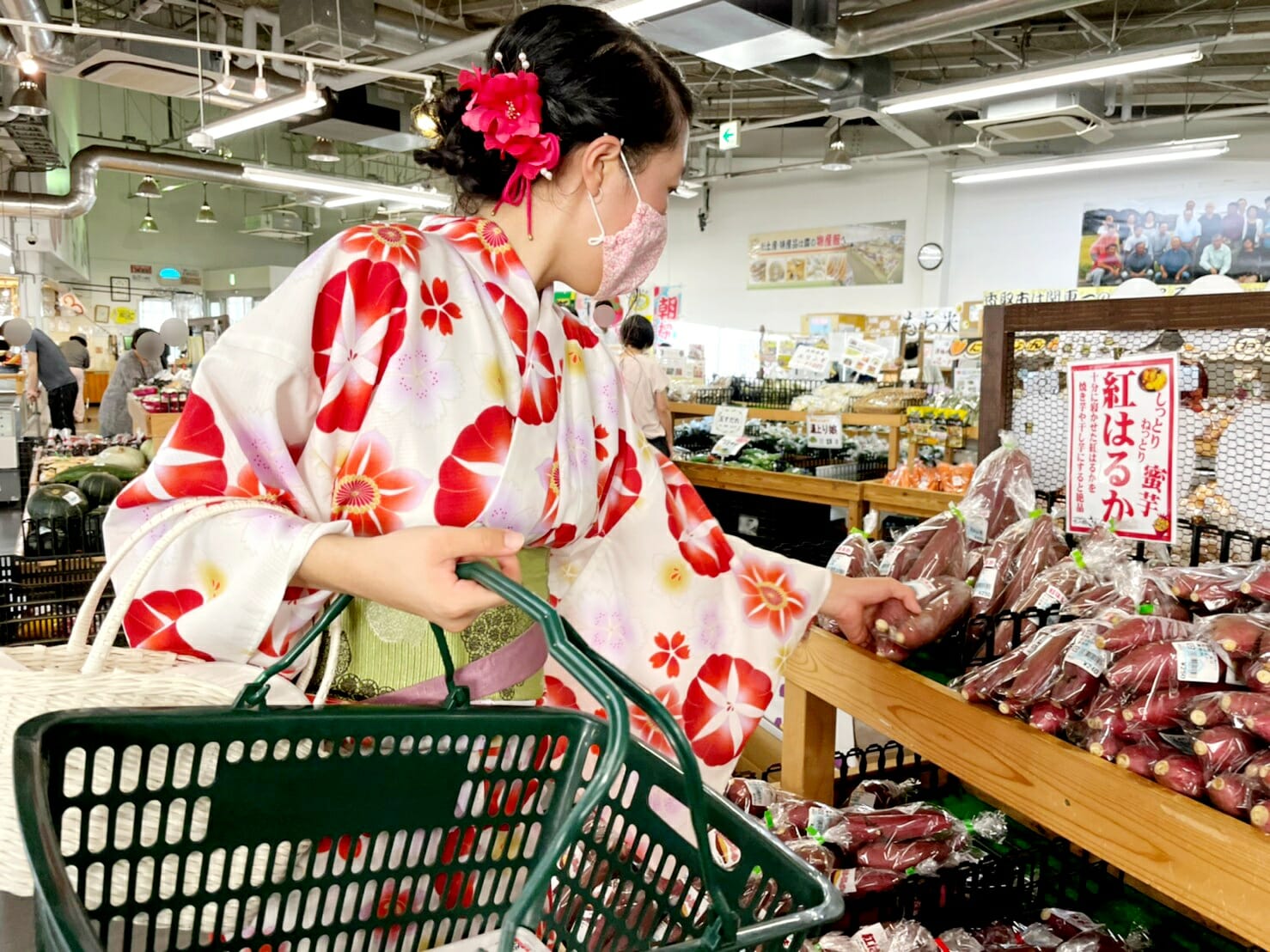
First on the menu was mapo tofu (Sichuan Province), my all-time favorite childhood (and adulthood) dish. I must admit that I was a bit skeptical at first because mapo tofu uses a lot of strong flavors and Abumo’s sesame oil is relatively mellow compared to the normal store-bought sesame oil. However, I was pleasantly surprised. The lovely toasty aroma of the sesame still came through and the earthy flavor was by no means overpowered. Although the chili oil (along with most other Japanese chili oils) lacked the smokiness that most Chinese chili oils have, the spiciness was nevertheless still there.
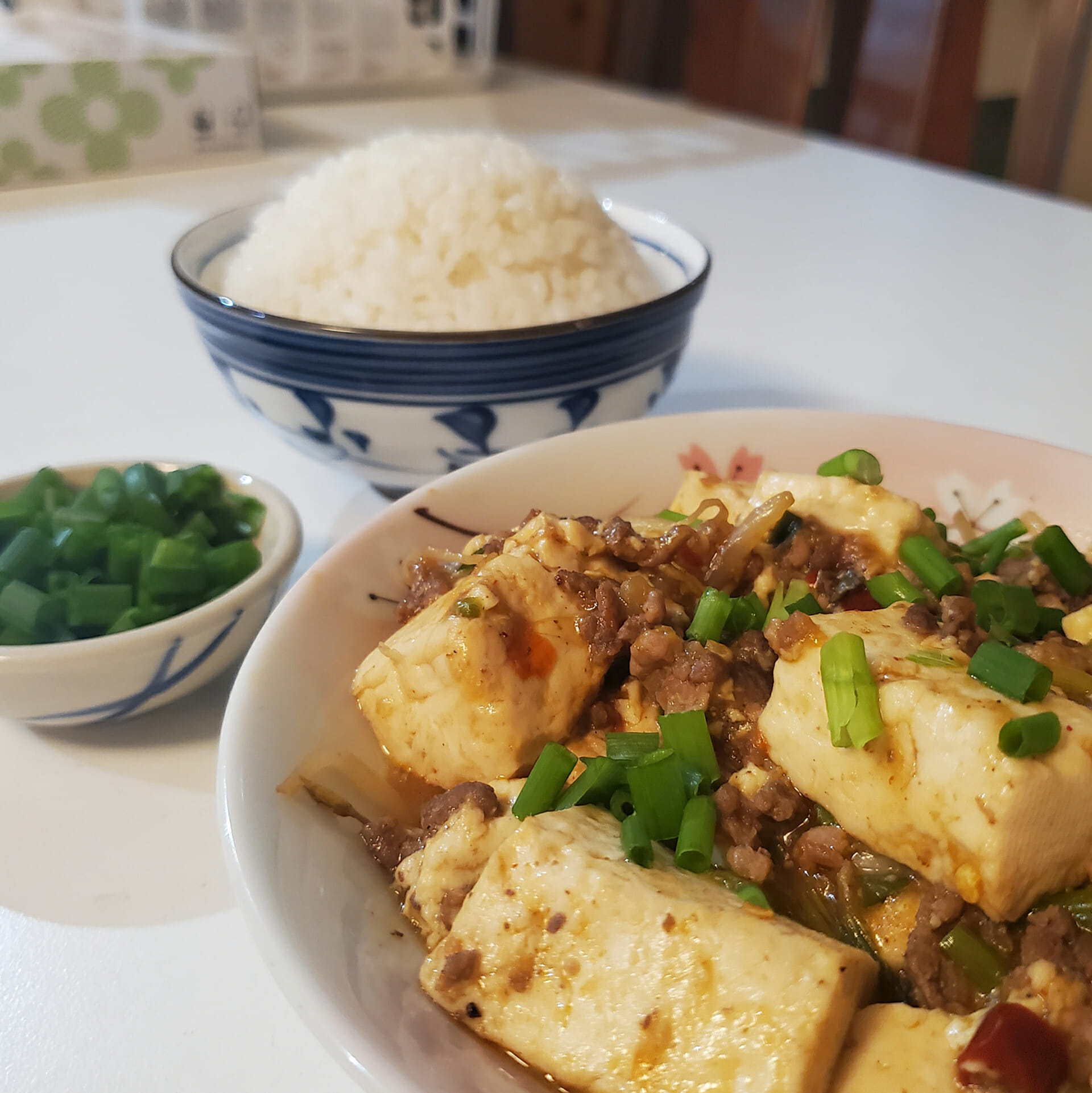
Next was fengwei eggplant (Shandong Province). As a dish that uses more mild condiments, the flavor of the sesame oil was naturally more prominent than in the mapo tofu, yet not overbearing, like other sesame oils can be. It was a perfect balance. It was sublime. The aromatic nuttiness and the rich sesame flavor were provocative, coaxing me into taking one bite after another until there was nothing left. Lamenting its evanescence, I made more.
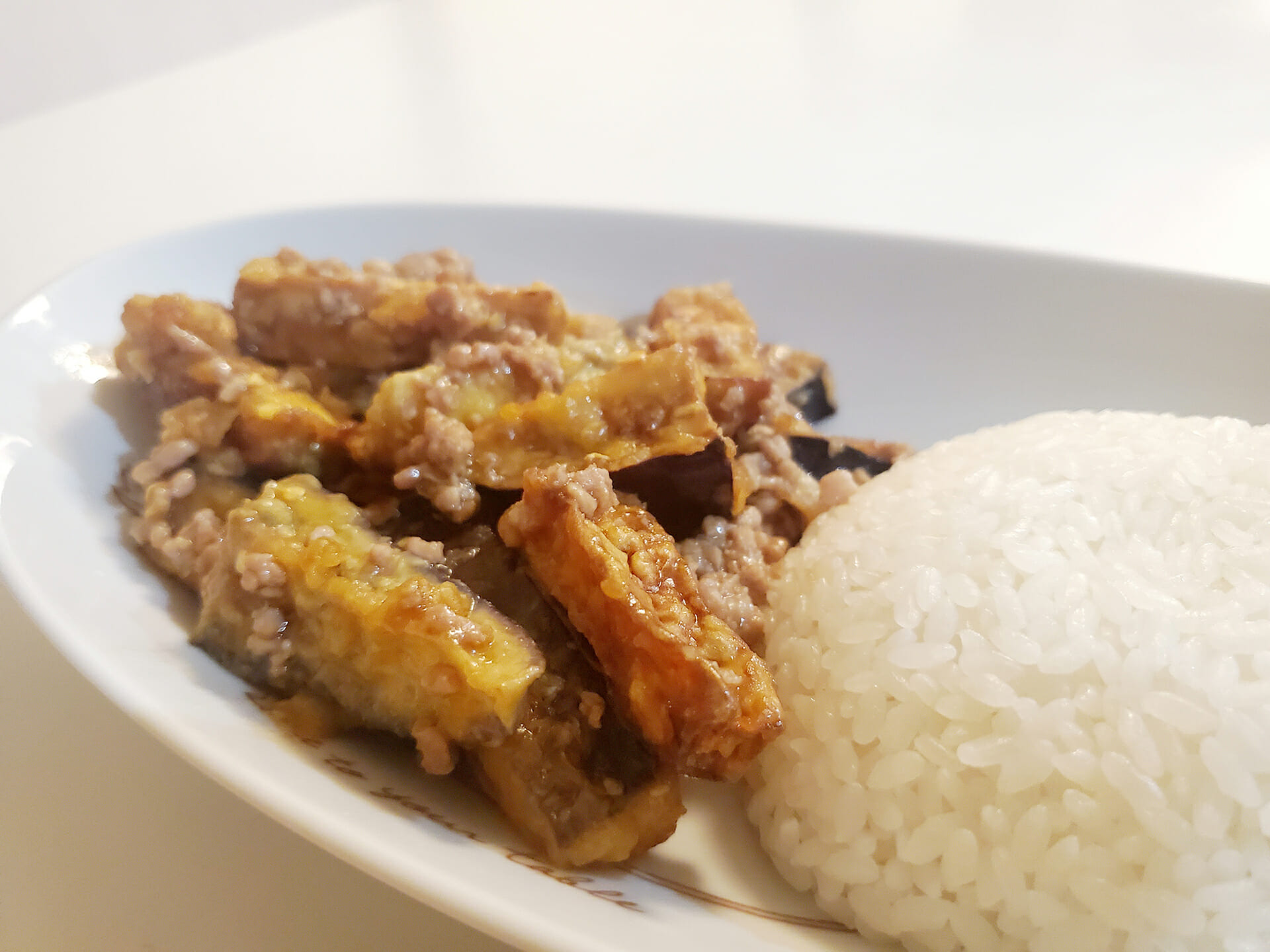
Perhaps the most classic use for chili oil in Japan is in a dipping sauce for gyoza (Japanese dumplings), so I naturally had to try it out, and let me tell you, adding even just a little bit of this chili oil will elevate your dipping sauce from mundane to heavenly. This wasn’t the set-your-mouth-on-fire kind of spicy, but rather, a pleasant spicy that brings waves of piquant zings to your taste buds with every bite.
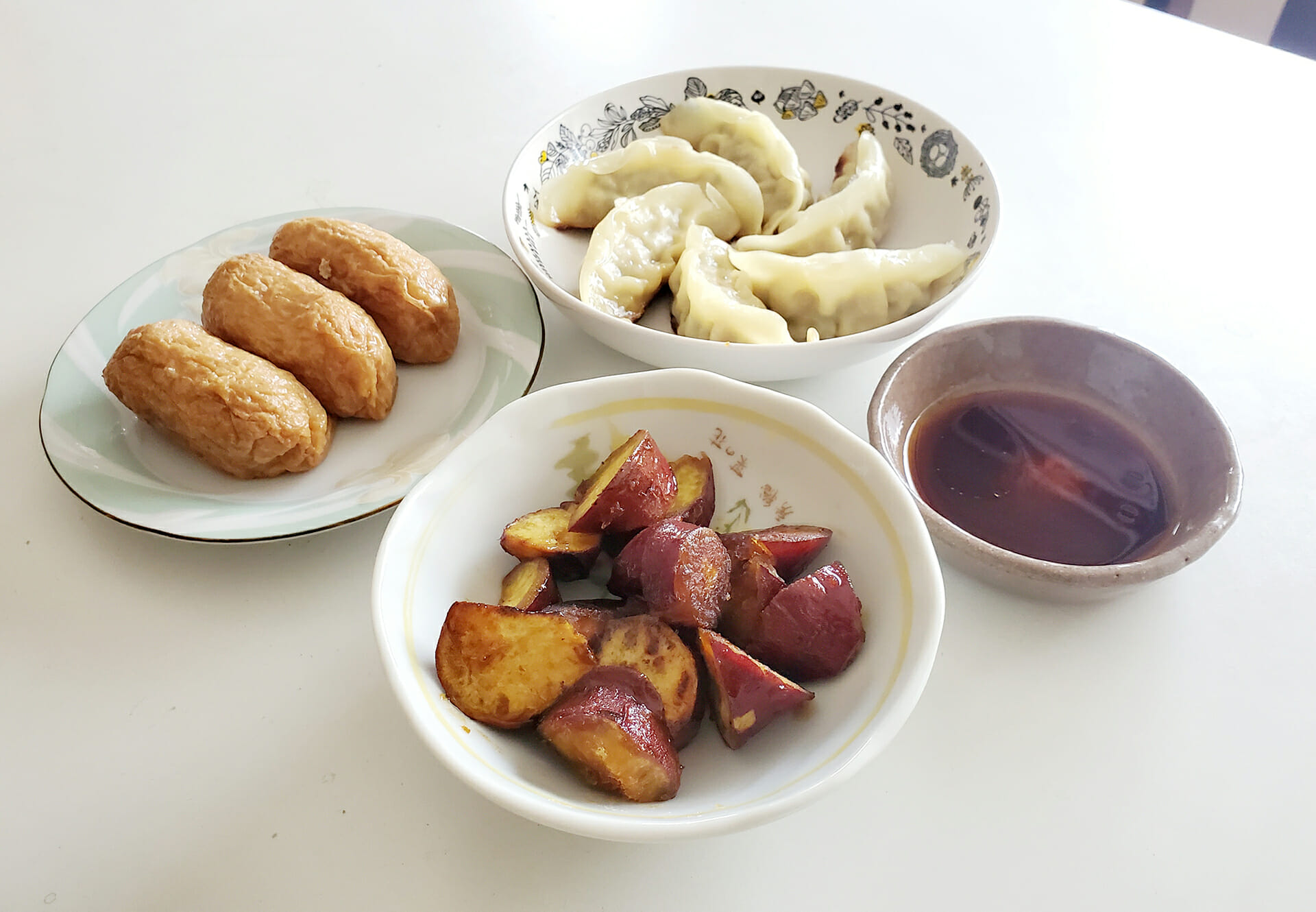
Although I have not tried it, I believe that Abumo Seiyu’s sesame and chili oil could make even a piece of cardboard taste good. But regardless of whether you’re a Michelin star chef or someone who tends to burn everything, be sure to add (Abumo Seiyu’s) oil when cooking! (“加油,” which literally translates to “add oil” in Chinese, roughly means “do your best.”)
I 3398 Sawara, Katori City
(A 12-minute walk from Sawara Station on the JR Narita Line)
+81-478-54-3438
I 3981-2 Sawara, Katori City
(By car: 4.5km from the Sawara-Katori IC.
By train: A 18-minute walk from Sawara Station on the JR Narita Line.)
+81-478-50-1183 (Roadside Station) +81-478-52-1138(Riverside Station)
Accessibility